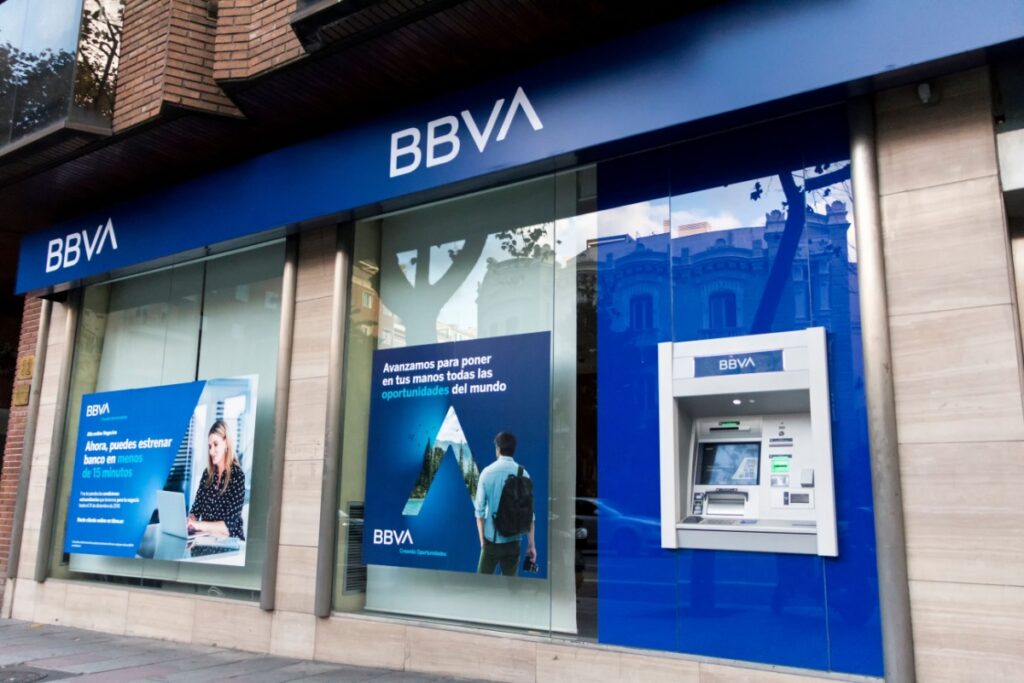Spain’s stock market watchdog, the Comisión Nacional del Mercado de Valores (CNMV), has granted approval for BBVA’s long-planned takeover attempt of Banco Sabadell, clearing the way for one of the most significant banking moves in recent Spanish history. The €14.9 billion hostile offer, equivalent to about $17.4 billion, will formally open on Monday, September 8, and will run until October 7. Results of the bid are expected roughly a week later, although the process could stretch if appeals or legal reviews arise.
Regulatory Approval and Offer Timeline
The regulator’s authorization follows months of preparation. BBVA, Spain’s second-largest lender, initially approached Sabadell with a friendly offer in May 2024, which was rejected. That rejection prompted the bank to pursue a hostile path, submitting its proposal directly to shareholders rather than negotiating with the rival’s board. The CNMV’s decision provides the legal framework for investors to tender their shares.
BBVA is seeking to secure at least 49.3 % of Sabadell’s voting rights. A key element of the plan also involves authorization from U.S. authorities, which allows BBVA to lower its minimum acceptance threshold to 30 %. However, this would trigger regulatory requirements for an additional all-cash bid for the remaining shares. Market analysts note that this dual structure ensures BBVA can claim a controlling stake even if the response from Sabadell’s shareholders proves lukewarm.
The timing is considered strategically important. The tender will run through a period of heightened market volatility in Europe, influenced by interest rate expectations from the European Central Bank and ongoing concerns over regional economic growth. Banking sector consolidation has been a recurring theme since the global financial crisis, and this bid is viewed as one of the defining deals of the current cycle.
Strategic Rationale and Financial Outlook
Should the takeover succeed, the combined bank would hold assets exceeding €1 trillion, making it Spain’s second-largest lender after Caixabank. Such a merger would significantly reshape the domestic financial sector, reducing the number of major players while boosting BBVA’s market share in small- and medium-sized enterprise lending, an area where Sabadell has historically been strong.
BBVA forecasts annual cost savings of around €900 million, largely through branch rationalization, technology integration, and reduced duplication in corporate functions. These efficiencies, however, are unlikely to be realized quickly. The Spanish government has imposed a three-year restriction on the integration of Sabadell into BBVA’s operations, delaying the capture of full synergies until 2029. Officials in Madrid have emphasized the need to protect competition and safeguard regional employment during the transition.
The structure of the offer reflects adjustments for Sabadell’s interim dividend. Each shareholder is being offered one new BBVA share plus €0.70 in cash for every 5.5483 Sabadell shares. This revised exchange ratio preserves the bid’s total valuation, ensuring that the dividend payout does not dilute the appeal of the deal. BBVA retains the ability to sweeten the proposal until October 2, five days before the scheduled closure, but executives have consistently stated they consider the current terms “full and fair.”
In broader strategic terms, BBVA is positioning the acquisition as part of its push to gain scale and efficiency in European retail banking while reinforcing its competitiveness against international rivals. The bank has also sought to reassure investors that the deal would not compromise its strong capital ratios, highlighting that it expects to maintain a CET1 capital ratio above 12 % after completion.
Shareholder Reactions and Market Dynamics
Attention now shifts to the stance of Banco Sabadell’s board and its shareholder base. Under Spanish takeover law, Sabadell’s directors are required to publish a formal opinion on the bid within 10 business days of the launch, setting a deadline of around September 19. The board has been critical of BBVA’s earlier offers, describing them as undervaluing the franchise, but its official recommendation will carry symbolic weight even if shareholders remain free to decide independently.
Minority shareholders hold roughly 50 % of Sabadell’s capital and are widely seen as the pivotal factor. Their response will determine whether BBVA achieves its minimum acceptance threshold. Some activist investors have already argued that the current terms undervalue Sabadell’s prospects, especially given its improving profitability and stronger balance sheet after recent cost-cutting measures. Market speculation suggests that many shareholders may wait until the final days of the offer period in hopes that BBVA might improve its proposal.
In the markets, Sabadell’s stock has traded close to the implied offer price, signaling both skepticism and cautious interest. Analysts at several investment banks have noted that the lack of a significant premium leaves the outcome uncertain. However, BBVA’s management has reiterated that the offer will not be raised, stressing that it delivers fair value and long-term benefits for both banks.
The takeover also carries broader political implications. Spain’s banking sector has already seen significant consolidation over the past decade, and the government has kept a close watch on the process. Concerns about regional employment, particularly in Catalonia and Valencia where Sabadell has a large presence, could fuel resistance. Nevertheless, regulators have largely signaled support for a stronger banking system capable of competing on a European scale.


